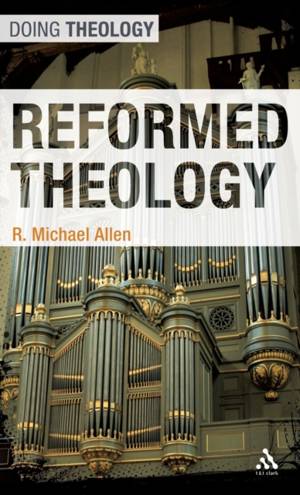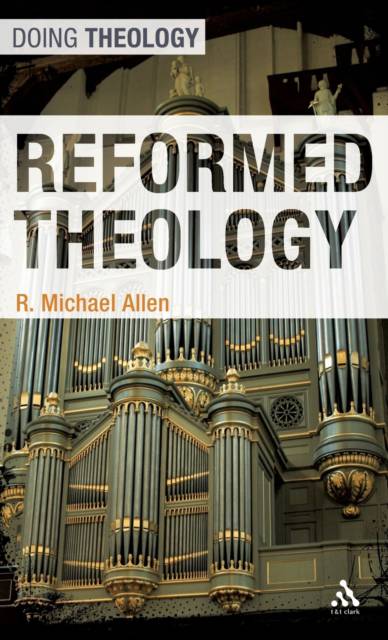
Je cadeautjes zeker op tijd in huis hebben voor de feestdagen? Kom langs in onze winkels en vind het perfecte geschenk!
- Afhalen na 1 uur in een winkel met voorraad
- Gratis thuislevering in België vanaf € 30
- Ruim aanbod met 7 miljoen producten
Je cadeautjes zeker op tijd in huis hebben voor de feestdagen? Kom langs in onze winkels en vind het perfecte geschenk!
- Afhalen na 1 uur in een winkel met voorraad
- Gratis thuislevering in België vanaf € 30
- Ruim aanbod met 7 miljoen producten
Zoeken
€ 228,95
+ 457 punten
Uitvoering
Omschrijving
This book introduces Reformed theology by surveying the doctrinal concerns that have shaped its historical development. The book sketches the diversity of the Reformed tradition through the past five centuries even as it highlights the continuity with regard to certain theological emphases. In so doing, it accentuates that Reformed theology is marked by both formal ('the always reforming church') and material ('the Reformed church') interests. Furthermore, it attends to both revisionary and conservative trends within the Reformed tradition.
The book covers eight major theological themes: Word of God, covenant, God and Christ, sin and grace, faith, worship, confessions and authority, and culture and eschatology. It engages a variety of Reformed confessional writings, as well as a number of individual theologians (including Zwingli, Calvin, Bullinger, Bucer, Beza, Owen, Turretin, Edwards, Schleiermacher, Hodge, Shedd, Heppe, Bavinck, Barth, and Niebuhr).
The book covers eight major theological themes: Word of God, covenant, God and Christ, sin and grace, faith, worship, confessions and authority, and culture and eschatology. It engages a variety of Reformed confessional writings, as well as a number of individual theologians (including Zwingli, Calvin, Bullinger, Bucer, Beza, Owen, Turretin, Edwards, Schleiermacher, Hodge, Shedd, Heppe, Bavinck, Barth, and Niebuhr).
Specificaties
Betrokkenen
- Auteur(s):
- Uitgeverij:
Inhoud
- Aantal bladzijden:
- 232
- Taal:
- Engels
- Reeks:
Eigenschappen
- Productcode (EAN):
- 9780567034298
- Verschijningsdatum:
- 2/09/2010
- Uitvoering:
- Hardcover
- Formaat:
- Genaaid
- Afmetingen:
- 140 mm x 216 mm
- Gewicht:
- 412 g

Alleen bij Standaard Boekhandel
+ 457 punten op je klantenkaart van Standaard Boekhandel
Beoordelingen
We publiceren alleen reviews die voldoen aan de voorwaarden voor reviews. Bekijk onze voorwaarden voor reviews.









